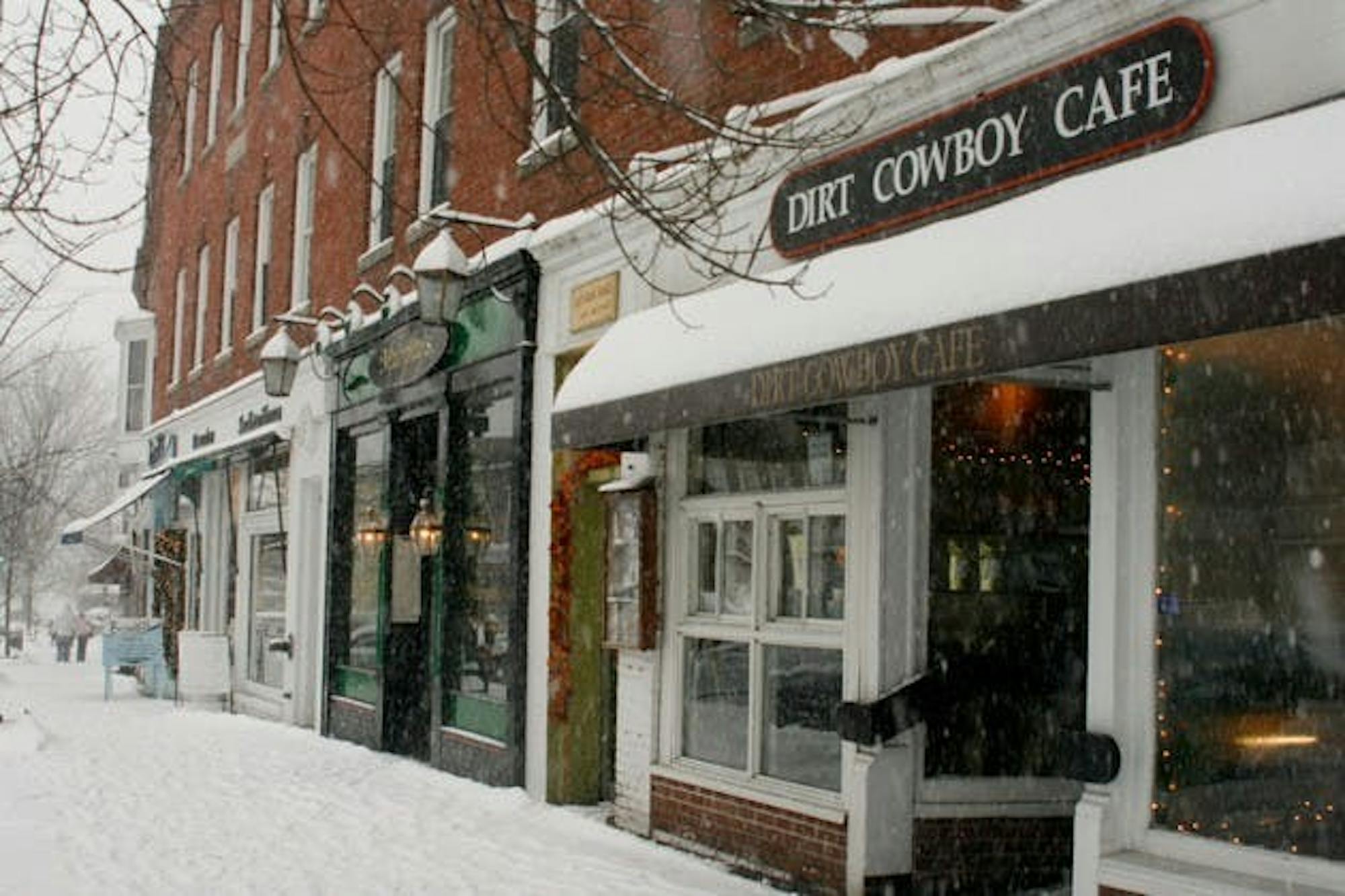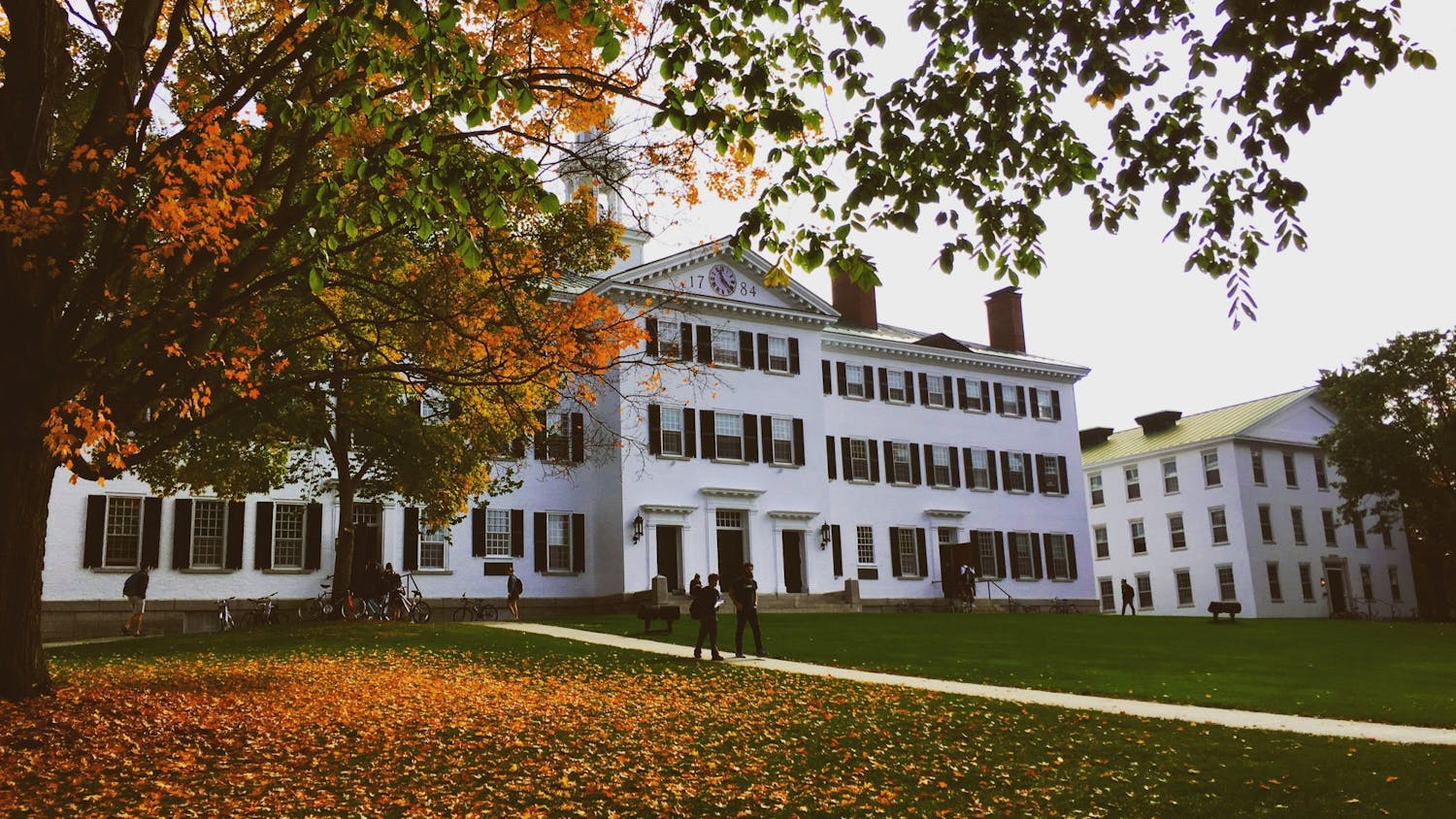As Dartmouth has begun to see lower COVID-19 case numbers following the recent outbreak on campus, business owners and town management underscore that despite little community spread, the town has still been impacted.
Hanover town manager Julia Griffin said that her email inboxes and voicemail messages have been “filled with complaints from residents or with concerns” about the outbreak.
“It’s put the community on edge. A lot of people are anxious as much as they are angry,” Griffin said, noting that the outbreak underscores the reality that the pandemic is still ongoing.
Still North Books and Bar owner Allie Levy said that some of her regulars told her that they were “avoiding” Hanover. “In town, you could just tell it was a lot quieter,” Levy said.
She said it now seems that the College may have acted quickly enough to protect Hanover from the spread of COVID-19 and that the community’s initial fear is “starting to dissipate a little bit.”
Griffin stated that the Dartmouth outbreak, first reported on Feb. 24, was something the town had braced for given the risk of an outbreak in “any community.”
She explained that the town of Hanover has not seen significant community spread lately, aside from a COVID-19 case that emerged on Friday morning at Hanover High School and a case at Hanover Terrace Health and Rehabilitation Center — which suffered an outbreak that saw seven deaths in December. Contact tracing has revealed that neither scenarios appear to be related to the Dartmouth outbreak, Griffin said.
In addition to the possibility of community spread, students’ decreased traffic into Hanover has also affected local businesses. As case counts increased on campus last weekend, Dean of the College Kathryn Lively sent emails to students living both on campus and locally off campus requesting that students avoid downtown Hanover and local residents.
Lou’s Restaurant and Bakery general manager Craig Morley said that the outbreak was “upsetting” and “frustrating,” but he was “surprised that it did not happen sooner” given how contagious the virus is.
Lou’s decided to close its dining room on the night of Feb. 27, effective the morning of Feb. 28. Their decision came after learning about the outbreak on Feb. 26 and seeing numerous students visit over the following day.
Unlike Lou’s, Molly’s Restaurant and Bar did not close its dining room. General manager Eric Isaacs explained that the restaurant is “fairly large inside and [has] the room to stay open” while adhering to the Centers for Disease Control and Prevention’s guidelines.
He said that the Dartmouth outbreak has provided an opportunity for Hanover residents who are “afraid to mingle with students” to eat at the restaurant, adding that he has often “gently” reminded students to not gather in groups of more than six per table throughout the winter.
Levy said that Still North switched to curbside pickup when the College declared it would be closing indoor spaces. After seeing the rate of infection decrease and not noticing a threat of transmission in the Upper Valley, Still North opened for browsing on Friday.
However, Dartmouth students were asked to continue utilizing curbside pickup, Levy said, in order to “follow the College’s request that they not visit local businesses.”
Morley said he does not expect Lou’s to reopen until the “cases drop considerably” and there are only around 50 or 60 students in quarantine. Morley predicted that by the end of the week, the restaurant will be able to reopen.
Many students are still ordering food from Lou’s. The number of takeout orders has stayed about the same as before the outbreak, Morley said, but delivery orders doubled in the week of the dining room’s closure. Delivery drivers dropped off contactless orders for students who tested positive for COVID-19 or were in isolation or quarantine.
Throughout the past week, Lou’s received about 150 to 200 orders, including 40 to 50 deliveries a day.
Isaacs questioned how well the College is supervising its students, claiming that Dartmouth students are still dining at Molly’s in groups despite the College asking all local students to avoid Hanover establishments and refrain from gathering. He described three or four parties of students on Wednesday and more on Saturday evening.
He noted Molly’s does not plan to close down or restrict student visits because it is “not here to be the police.”
“We just hope that they make the right judgment call, and if they are supposed to be quarantined, then they should quarantine,” Isaacs said.
According to Morley, Lou’s is doing “fine,” but it is likely losing money. Compared to January and February of last year, its profits this year were higher up until the outbreak.
Griffin noted that the town is unable to provide financial support for its businesses, but she said that many businesses are already aware of what federal funds and state funds are available to them at this point in the pandemic.
Morley said that Lou’s has received Paycheck Protection Program loans to keep its staff members employed and has qualified to receive financial assistance.
“If it wasn’t for the community and for the government loans, I’m not sure where we’d be right now,” Morley said.
On the student end, Griffin noted that she has received “some pretty nasty emails from students” who were angry at the town for demonizing them. According to Griffin, the students argued that they were taxpayers and were not being respected.
“It’s not about disrespecting you. It's about you, acknowledging as students, that we are a community that needs to take care of each other,” Griffin said. “Right now, the best way to take care of each other is to abide really strictly by the [COVID-19 protocols], and when you don’t do that, this outbreak is what can happen.”
Griffin said she believes the problem with enforcement centers around students who are living off campus because they are “not as supervised by the College” compared to on-campus students.
She said that Hanover has no plan for restricting off-campus student behavior because the town “do[es] not have the resources nor the desire to put surveillance to keep an eye on all off-campus rentals.” However, Griffin urged students living off campus to stop large gatherings in their rentals and backyards noting that they “alarm your neighbors” and “make Hanover residents nervous.”
Campus quarantine restrictions are expected to lift Monday morning, meaning students not in quarantine or isolation housing can return to patronize Hanover establishments.





